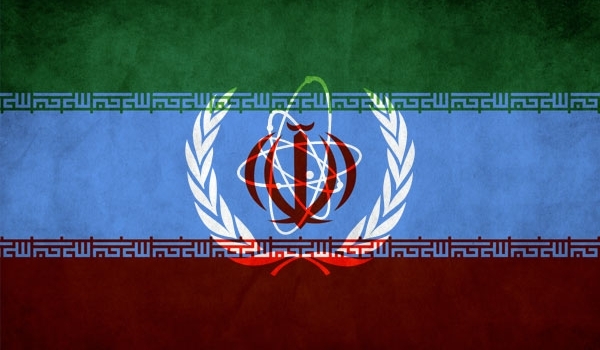 TEHRAN (FNA)- The International Atomic Energy Agency inspectors and Iranian officials ended their latest round of talks on cooperation between Tehran and the UN watchdog agency.
TEHRAN (FNA)- The International Atomic Energy Agency inspectors and Iranian officials ended their latest round of talks on cooperation between Tehran and the UN watchdog agency.Neither side has revealed anything to the public about the contents or results of the talks.
A team of IAEA inspectors, headed by Chief Inspector Tero Varjoranta, arrived in Tehran on Tuesday morning to meet with the officials of the Atomic Energy Organization of Iran (AEOI) in Tehran and discuss the 6-step and 7-article agreements with Iran and ways to continue cooperation between the two sides.
The meetings were held yesterday but the results still remain to be announced by Iran or the IAEA.
Earlier this month, Spokesman for the AEOI Behrouz Kamalvandi announced that the IAEA has voiced pleasure in the recent inspection of the country's nuclear sites.
"During the trip (made early this month), we had some negotiations with the IAEA inspectors on (the implementation of) the safeguards in Arak (heavy water reactor in Central Iran) and some agreements were also made in this regard," Kamalvandi told FNA.
He stressed that Iran provided the IAEA inspectors with necessary access to the country's nuclear installations, and that the inspectors have voiced satisfaction with the trend. "We believe that the Islamic Republic of Iran has been successful in clarifying certain cases to remove the ambiguities."
Kamalvandi said as Iran and the IAEA go ahead with the implementation of their cooperation, the UN nuclear watchdog will report more about Iran's consistency in complying with its undertakings until all problems and ambiguities are resolved.
He said Iran has asked the IAEA to mention the positive trend in the two sides' cooperation in its reports, and the UN nuclear watchdog has taken up to do so.
In their latest visit, the UN body's inspection team headed by IAEA Deputy Chief Massimo Aparo visited the Saghand uranium mine in Yazd province in Central Iran.
The IAEA's inspection of Saghand uranium mine was part of their visit to Iran's nuclear facilities in Yazd province. Aparo and his team later visited Ardakan Yellowcake production - uranium ore concentrate processing - plant in the same province.
Iran announced in late January that inspectors of the IAEA had paid a visit to Gachin uranium mine in Southern Iran.
The inspectors of the IAEA also visited Arak heavy water facilities in December.
On February 8, the AEOI and the IAEA released a 7-article MoU on continued cooperation in the future.
The agreement contains Iran's voluntary cooperation untouched in the November Iran-IAEA agreement, known as the Tehran Declaration, in the form of the joint plan of action signed in late November between Iran and the Group 5+1 (the five permanent UN Security Council members plus Germany). The agreement included Tehran's voluntary cooperation in:
1-Providing (the IAEA) with administered access to Yazd�s Saghand Mine and the information agreed by the two sides,
2-Providing (the IAEA) with administered access to Ardakan enrichment facility the information agreed by the two sides,
3-Submitting updated design information questionnaire (DIQ) of Arak�s IR-40 reactor,
4-Adopting measures to materialize safeguard approach for Arak�s IR-40 reactor,
5-Arranging technical visit to Lashkarabad Laser Center and providing (the IAEA) with the information agreed by the two sides,
6-Providing source material, that has not reached the necessary composition and purity for making fuel or enrichment, including import of such material to Iran and extraction of uranium from phosphate by Iran,
7-Providing information and explanations to the IAEA to evaluate Iran�s statement on the need or application of Electron Bernstein waves (EBW) (new generation of safe fuses).
Two days later on February 10, Kamalvandi underlined that inspection of Iran's military sites was no part of the Tehran 7-Article agreement struck between the AEOI and the IAEA.
�Inspection of Parchin (military site) is not within the framework of these seven steps,� Kamalvandi told reporters in Tehran.
By Fars News Agency
The Iran Project is not responsible for the content of quoted articles










